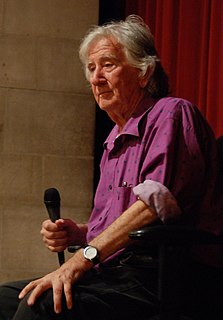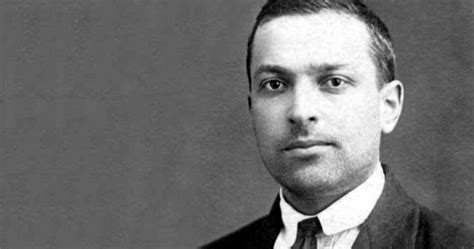A Quote by Aldous Huxley
This concern with the basic condition of freedom -- the absence of physical constraint -- is unquestionably necessary, but is not all that is necessary. It is perfectly possible for a man to be out of prison and yet not free -- to be under no physical constraint and yet to be a psychological captive, compelled to think, feel and act as the representatives of the national State, or of some private interest within the nation, want him to think, feel and act.
Related Quotes
How necessary it is to cultivate a spirit of joy. It is a psychological truth that the physical acts of reverence and devotion make one feel devout. The courteous gesture increases one's respect for others. To act lovingly is to begin to feel loving, and certainly to act joyfully brings joy to others which in turn makes one feel joyful. I believe we are called to the duty of delight.
We want freedom by any means necessary. We want justice by any means necessary. We want equality by any means necessary. We don't feel that in 1964, living in a country that is supposedly based upon freedom, and supposedly the leader of the free world, we don't think that we should have to sit around and wait for some segregationist congressmen and senators and a President from Texas in Washington, D.C., to make up their minds that our people are due now some degree of civil rights. No, we want it now or we don't think anybody should have it.
Theatre has nothing to do with buildings or other physical constructions. Theatre - or theatricality - is the capacity, this human property which allows man to observe himself in action, in activity. Man can see himself in the act of seeing, in the act of acting, in the act of feeling, the act of thinking. Feel himself feeling, think himself thinking.
My main interest is in the promotion of human values. From birth we have a sense of affection and some sense of concern for others. We need to nurture it. Scientists have found that to ensure even physical health peace of mind is essential. People often think that love and compassion are only matters of religious concern, but in fact such values are necessary in all human relations
I have observed this in my experience of slavery, - that whenever my condition was improved, instead of its increasing my contentment, it only increased my desire to be free, and set me to thinking of plans to gain my freedom. I have found that, to make a contented slave, it is necessary to make a thoughtless one. It is necessary to darken his moral and mental vision, and, as far as possible, to annihilate the power of reason. He must be able to detect no inconsistencies in slavery; he must be made to feel that slavery is right; and he can be brought to that only when he ceased to be a man.
You cannot persist in wanting what you already have. If you assume you are what you desire to be to the point of ecstasy, you no longer want it. Your imaginal act is as much a creative act as a physical one wherein man halts, shrinks and is blessed, for as man creates his own likeness, so does your imaginal act transform itself into the likeness of your assumption. If, however, you do not reach the point of satisfaction, repeat the action over and over again until you feel as though you touched it and virtue went out of you.
Have the daring to stop doing the things you really don't want to do. Can you see them? Look closely. Can you observe the many things you do because you reluctantly feel you should or must? Watch closely. Examine every action and reaction. Do you act naturally or do you act because you feel compelled? If you feel compelled, stop. Compulsion is slavery. Example: Refuse to go along with the crowd.
I think time is a constraint to destroy and then reinvent. If you give me a constraint, I'll accept it. But I always try to move it around, or to readapt it. Ecco! If you lock me in a room, well I'll go out through the window! I always remember Achille Castiglioni, one of my mentors, and he always said that in industrial design you have the idea, the fantasy, the concepts - that's the marmalade! - but the constraint of the brief is the bread. You need both in order to find structure for your ideas.
I think female solitude is a mental condition as well as a physical state. You can be married and a spinster. I think spinster is an identity every woman can claim, if she will... I feel like a lot of women, or a lot of feminists, joke about taking to the sea or living alone in a cottage as this kind of fun freedom.
In the 'in-itself' there is nothing of 'causal connections', of 'necessity', or of 'psychological non-freedom'; there the effect does not follow the cause, there is no rule or 'law'. It is we alone who have devised cause, sequence, for-each-other, relativity, constraint, number, law, freedom, motive, and purpose; and when we project and mix this symbol world into things as if it existed 'in itself', we act once more as we have always acted- mythologically.






































